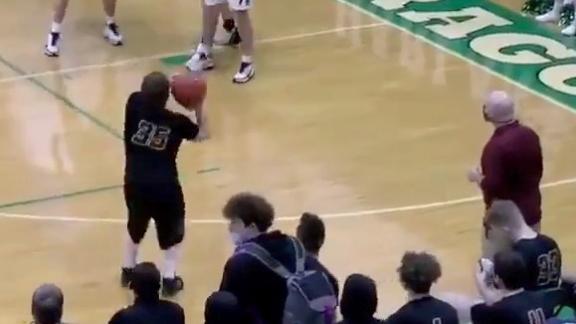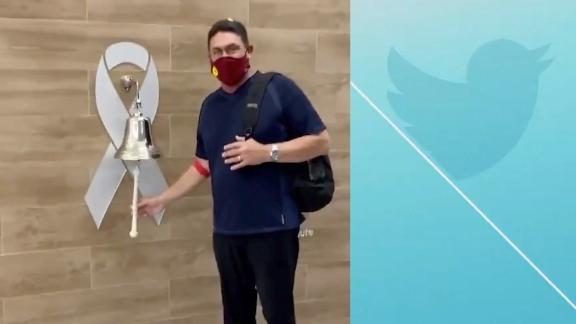Elite cyclist Kathryn Bertine is writing about her quest to qualify for the 2012 London Games. In Part 6 of her series, Bertine explains that the equality between men's and women's cycling is far from equal.
Stop me if you've heard this one before.
A woman rides her bike past a house. A man in the front yard is speaking sternly to a pigeon. The woman stops and asks what he's doing.
The man says, "I'm teaching the pigeon to race."
The woman asks, "Why?"
The man says, "Because pigeon racing earns 10 times the prize money as women's cycling! Ha, ha, ha!"
As a joke, this fails miserably. As reality, this scenario is miserably true. In Belgium, where I've been living and racing (bikes, not birds) for the past six weeks, I've been staying down the street from a man who races pigeons for a living. Pigeon racing is quite the rage in Belgium and other parts of Europe. Pigeons are trained to fly long distances as quickly as possible. They're brought to a meeting place, released, and then the owners drive hundreds of miles to pick them up in Paris or Frankfurt or Brussels. Like in horse racing, wagers are placed and prize purses are lucrative. The top bird can take home up to 10,000 euros. That's about $16,000 -- for a bird to fly from one place to another.
For a woman to ride her bicycle from Point A to Point B and get there before the rest of her flock, the prize money is rarely more than $1,000. And that's at a top level UCI (Union Cycliste International) race. But that's not the worst part of the meager winnings. Because cycling is a team sport and most women's teams enter six to eight riders per event, that prize money is then divided by the number of people on the team. It's rare that the best women's racers in the world will take home more than a couple of hundred dollars per event -- not even enough to buy a world-class pigeon.
Male cyclists, on the other hand, earn slightly more than the birds. At Paris-Roubaix, one of the most famous single-day events in cycling, the winner nets about $40,000, and the prize purse for the top 20 finishers pays out more than $120,000. Multiday events known as stage races bring more, and the pinnacle event -- the Tour de France -- brings the winner nearly 800,000 euros to split with his team. Of course, even this pales in comparison with the earnings of the top athletes in the world's other professional sports -- baseball, football, golf, hockey, basketball. Even cricket. Not the bug racing kind of cricket, though I'm guessing if there is such a thing, those earnings probably top women's cycling, too.
The reality is, of course, barely anyone in women's cycling does it for the money. We do it for the love of the sport, the thrill of racing and the pride of living life to the fullest. In that manner, we're fabulously rich. But that doesn't mean we should settle for the inequalities. Equal prize money isn't the first step in our battle. Exposure and inclusion are the initial hurdles. Last week, Eurosport ran nearly six hours of television coverage of the Tour of Flanders. At the end of the broadcast, a 20-second clip of the women's sprint to the finish line flashed by on the screen. The women don't even get invited to all the major events. There is no Parix-Roubaix, there is no Tour de France … albeit, a watered-down version held the following month on a different course, which is half the distance, awards one-tenth of the prize purse, and is held only during years when they get enough sponsors.
A male friend of mine -- an Olympian and Tour de France rider -- once said, "Women don't deserve the same prize money if their races are shorter and their field is smaller." A valid point, I believe. Marathon runners, triathletes, swimmers and plenty of other athletes have men and women compete in the same distances with the same number of competitors. But here's the rub: Female cyclists aren't the ones choosing the race length and field size; that is up to the race director. Change must come from within the organization to give the athletes the equality they deserve. Somewhere along the way, the good ol' boys network of cycling has overlooked the fact that including women's coverage isn't just good for the athletes, but will likely double cycling's audience and the event's sponsorship potential. Like the old Chinese proverb says, "Women hold up half the sky." We deserve our half of the pavement, as well.
I guarantee that if Christian Prudhomme, the director of the Tour de France, opened his event to pro women's teams and offered equal camera time and prize money, there would be 200 of the best female bike racers on the start line who would give the organization, sponsors and cycling fans exactly what they want -- an incredible bike race among the world's top athletes, regardless of gender. That's when our equality starts.
First, however, I should get back to my Olympic quest, where all the prize money in the world and all the pigeons on the planet can't buy me what I need most: Olympic qualification points. For now, that's the journey. I'll conquer the Tour de France next year. Prudhomme will need that time to prepare for me, anyway.




